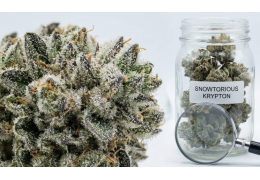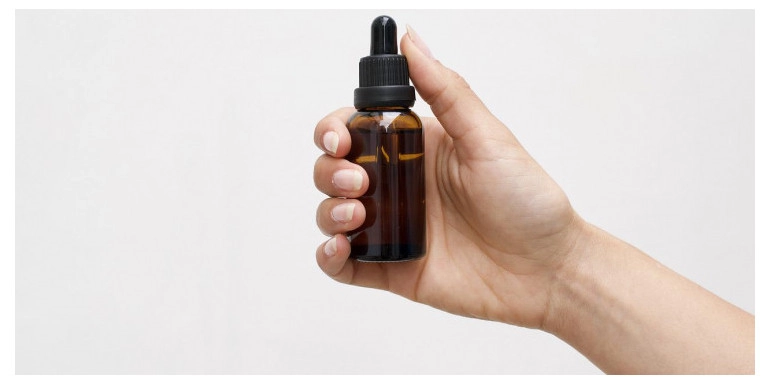Search in blog
Latest posts
Cannabidiol (CBD) is a compound found in hemp that brings many benefits to the body. This has led many people to speculate that it may also have potential uses in the treatment of attention deficit hyperactivity disorder (ADHD). However, before you decide to try it, it's important to learn more about what CBD oil is, what research says about what it can do, and what benefits it can have in relieving ADHD symptoms. We invite you to read!
ADHD is a neurodevelopmental disorder that is most often diagnosed in childhood. It can cause symptoms such as ; inattention, hyperactivity and impulsivity.
CBD oil is extracted from the hemp plant and mixed with a carrier oil such as hemp seed oil, grape seed oil, olive oil or sunflower oil.
The cannabis plant contains hundreds of different compounds. CBD is the second most common cannabinoid found in hemp. Unlike THC, it is not psychoactive and thus has some mental health benefits, including potential benefits for people with ADHD.
Reasons to Consider Using CBD
Some people who advocate the use of CBD oil for ADHD suggest that:
Part of the appeal of using CBD oil may be to avoid some of the side effects associated with traditional ADHD treatments.
While the Centers for Disease Control and Prevention (CDC) reports that between 70 and 80% of children with ADHD experience reduced symptoms after taking medications to stimulate ADHD, they can cause side effects, including sleep problems, decreased appetite, and mood swings.
Before you decide to try CBD oil to treat ADHD, it's important to consider the available research. Most importantly, you should always talk to your doctor before trying any alternative remedies.
Research
So what do the experts have to say? Is CBD oil really effective in treating ADHD? Interest in the use of CBD far outweighed research into its uses, safety, and efficacy.
While some proponents make many claims, the truth is that research on the use of CBD to treat ADHD is very limited. Most of what scientists already know comes from research on the use of dried cannabis or marijuana consumed, rather than directly on the effects of CBD oil or other CBD products.
Even the available research on the use of cannabis to treat ADHD is very limited. Many of these studies are also based on data reported by patients themselves, which do not provide as much support as clinical trials.
A 2013 study looked at cannabis use and ADHD subtypes. Data collected from more than 2800 participants showed that people were more likely to report symptoms of hyperactivity and impulsivity when they did not self-medicate with cannabis. This suggests that people using CBD Oil for self-treatment may find relief from the symptoms of hyperactivity and impulsivity.
Already a few years ago, one controlled study from 2017 found that adults with ADHD treated with the cannabinoid drug Sativex (containing THC and CBD) showed a slight reduction in ADHD symptoms without cognitive impairment. However, it should be borne in mind that this improvement was small. and were not enough to show that cannabinoids were much more effective than treatment with other methods.
A 2020 study found that higher doses of medical marijuana were associated with reduced use of ADHD medications in adults. Products containing a higher dose of CBD were associated with lower ADHD scores.
Although evidence that CBD oil may be useful in treating ADHD remains scant, it can be useful in dealing with some of the symptoms that are sometimes associated with the disease. ADHD is often associated with a variety of co-occurring conditions, including anxiety and depression.
CBD has shown promise as a potential treatment for many mental health conditions, so it may be helpful in reducing symptoms of anxiety and depression in people who have ADHD.
Summary
Should you try CBD oil for ADHD? Here is a very important thing to remember:
It should not replace other methods of treatment. While there is evidence that CBD can have a use in mental health, that doesn't mean it's the best option for treating ADHD. Until further evidence demonstrates CBD's suitability for this purpose, it is better to stick to well-known treatments that have a solid history of effectiveness.
source:
Centers for Disease Control and Prevention (CDC). Treatment of ADHD. Updated September 21, 2020.
Loflin M, Earleywine M, De leo J, Hobkirk A. Subtypes of attention deficit-hyperactivity disorder (ADHD) and cannabis use. Subst Use Misuse. 2014;49(4):427-34. doi:10.3109/10826084.2013.841251
Cooper RE, Williams E, Seegobin S, Tye C, Kuntsi J, Asherson P. Cannabinoids in attention-deficit/hyperactivity disorder: A randomised-controlled trial. Eur Neuropsychopharmacol. 2017;27(8):795-808. doi: 10.1016/j.euroneuro.2017.05.005
Hergenrather JY, Aviram J, Vysotski Y, Campisi-Pinto S, Lewitus GM, Meiri D. Cannabinoid and terpenoid doses are associated with adult ADHD status of medical cannabis patients. Rambam Maimonides Med J. 2020;11(1):e0001. Doi:10.5041/RMMJ.10384
 Hemp oil as a cure for cancer
Hemp oil as a cure for cancer
 WHY HEMP? (legal MEDICAL MARIJUANA)
WHY HEMP? (legal MEDICAL MARIJUANA)
 About Cannabinoids or what is CBD?
About Cannabinoids or what is CBD?
 Medical report proving the effectiveness of CBD extract
Medical report proving the effectiveness of CBD extract
Latest posts



